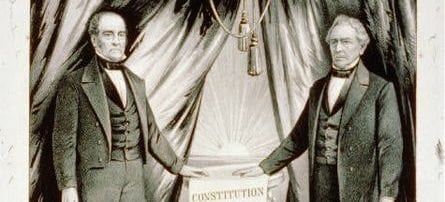And how will negro emancipation be viewed at the North? There was a time, not very long since, when a large majority of the Northern people would have opposed it strenuously—not so much from any admiration for slavery, as from a belief that, under the Constitution, we had no right to meddle with it, and that its abolition involved dangers and inconveniences perhaps as formidable as those which were created by its existence. Even at the present time a mortal antipathy for the negro is entertained by a large class of persons at the North—as is evidenced by the recent vote against negroes in Illinois, the riots in Cincinnati and Brooklyn, and the unkind treatment of the negro fugitives at Hilton Head by the regiments of General Hunter’s army. At the same time, the war has produced a remarkable change in the opinions of educated and liberal men at the North. Such leading men as General [Lew] Wallace of Illinois [i.e., Indiana], Daniel S. Dickinson of New York, General [Benjamin F.] Butler of Massachusetts, and nine-tenths of the generals in the field—who, a year ago, really believed that slavery was the true station for the negro—have lately freely expressed what used to be called “abolition views.” How long it will take for these liberal views to permeate society, and stamp themselves on the mind of the working-class, remains to be seen. We do not, for our part, apprehend any serious opposition at the North to the President’s policy, except in circles whose loyalty to the country may well be questioned.
Demagogues will of course endeavor to excite our working-classes against the Government by threatening them with the competition of free negro labor. It seems hardly worth while to reply to so shallow and so mean an argument as this. Our laboring class in this country is intelligent enough to know that what we want in every part of this country is not fewer but more laborers. For years we at the North have been moving heaven and earth to get more labor from Europe, and we have succeeded in getting a very large number of men every year; yet wages have steadily advanced instead of falling.… So at the South. They have increased their stock of labor steadily by every means, lawful and unlawful, for thirty years, and yet the price of slaves has steadily risen from $400 to $1500 for adult field hands, and the cry—before the war—was still for more labor. The man who tries to frighten the North with threats of competition by emancipated negroes insults the understanding of our laboring class.








































































































































































































